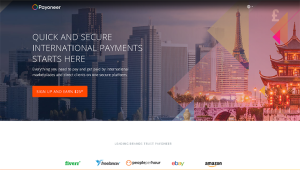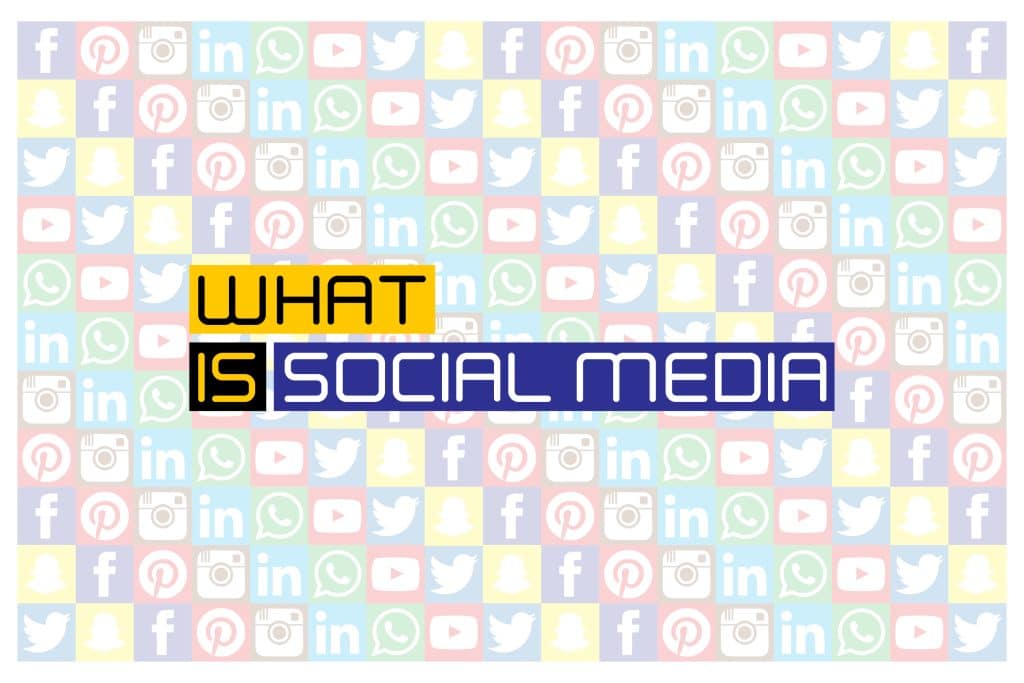
Social Media Advantages and Disadvantages
Social media platforms are typically accessed through a website or mobile app, and they allow users to create a personal profile, connect with other users, and share various types of content, such as text, photos, and videos. Many social media platforms also have features that allow users to communicate with each other in real-time, such as through private messaging or live video chat. Social Media Advantages and Disadvantages.
Social media refers to online platforms and websites that allow users to interact with each other and share content. Some examples of social media platforms include:
Facebook: A platform that allows users to connect with friends and family, share updates and photos, and join groups and pages related to their interests.
Twitter: A platform that allows users to share short messages (called “tweets”) and interact with others through the use of hashtags.
Instagram: A platform that allows users to share photos and videos, as well as interact with others through likes, comments, and hashtags.
LinkedIn: A professional networking platform that allows users to connect with colleagues, search for jobs, and join professional groups.
YouTube: A video-sharing platform that allows users to upload and share videos, as well as subscribe to channels and interact with others through comments and likes.
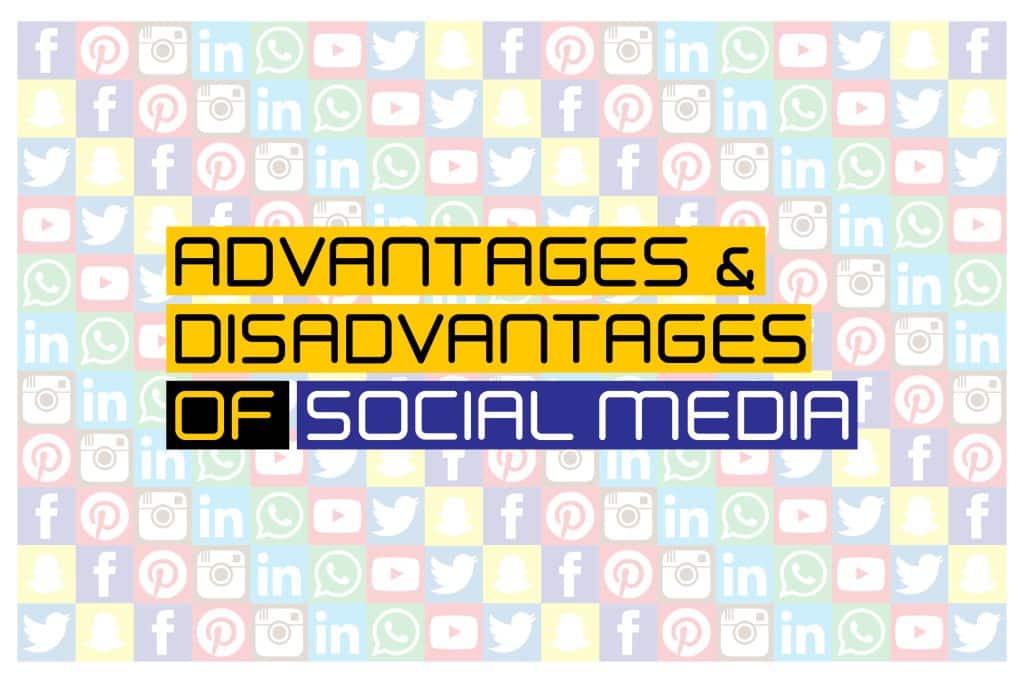
What are the Advantages and Disadvantages of Social Media?
There are both advantages and disadvantages to using social media. Some of the main advantages include:
Connecting with others: Social media allows people to connect with others who have similar interests, as well as stay in touch with friends and family members who may be far away.
Sharing information and ideas: Social media platforms make it easy to share information and ideas with a large audience quickly and efficiently.
Staying informed: Many people use social media to stay up-to-date on the latest news and current events.
Professional networking: Some social media platforms, such as LinkedIn, are specifically designed for professional networking and can help users to find job opportunities and connect with other professionals in their field.
Marketing and promotion: Businesses can use social media to reach a large audience and promote their products or services.
However, there are also some disadvantages to using social media, including:
Addiction: Some people may become addicted to social media and spend too much time on these platforms, which can lead to problems such as sleep deprivation and difficulty focusing on other tasks.
Cyberbullying: Social media can be a breeding ground for cyberbullying, as people can anonymously harass or bully others online.
Spread of misinformation: It is easy for misinformation to spread quickly on social media, as people may share news or information without fact-checking it first.
Privacy concerns: Some people may be concerned about their privacy on social media, as their personal information and activity may be visible to others.
Professional consequences: Employers may be able to see an individual’s social media activity, and if it is inappropriate or unprofessional, it could have negative consequences for their career.
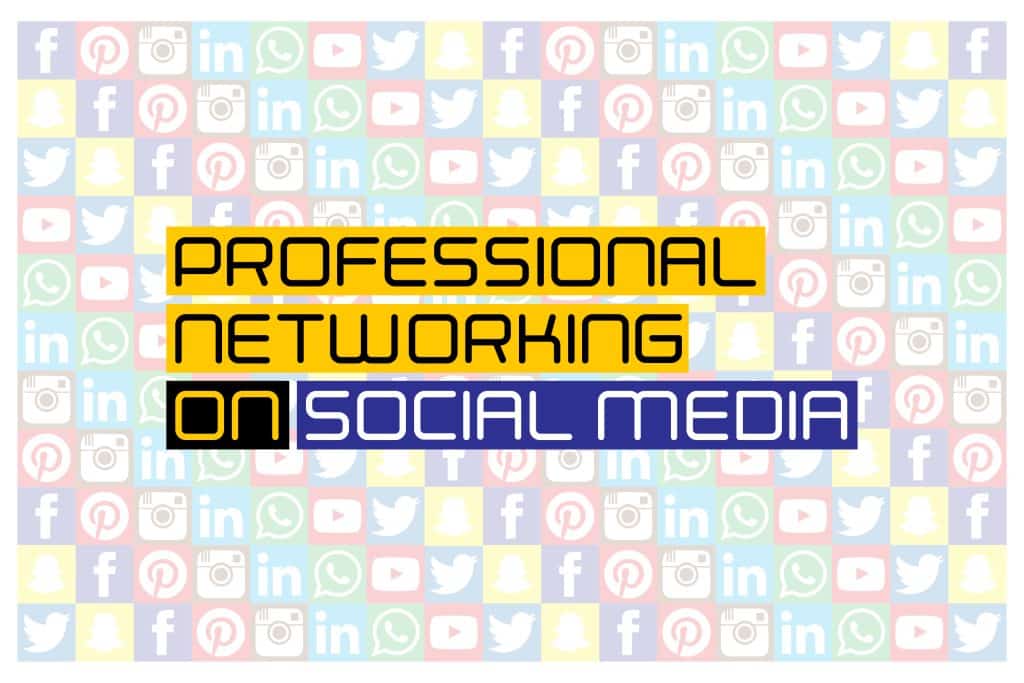
Social Media Professional Networking?
Social media professional networking refers to the use of social media platforms to connect with other professionals, find job opportunities, and build professional relationships. Some popular social media platforms for professional networking include LinkedIn, Twitter, and Facebook.
On LinkedIn, users can create a professional profile that includes information about their education, work experience, and skills. They can also connect with other professionals, join groups related to their industry, and search for job opportunities. LinkedIn also offers premium features, such as the ability to see who has viewed your profile and access to a larger network of professionals.
Twitter is a microblogging platform that allows users to share short messages (called “tweets”) and interact with others through the use of hashtags. While Twitter is not specifically designed for professional networking, many professionals use it to share industry news, connect with others in their field, and promote their work.
Facebook is a social media platform that allows users to connect with friends and family, as well as join groups and pages related to their interests. While it is not primarily used for professional networking, many professionals have a presence on Facebook and use it to connect with others in their field and share updates about their work.
Overall, social media professional networking can be a useful tool for building relationships, finding job opportunities, and staying up-to-date on the latest industry news. However, it is important to use these platforms responsibly and to be mindful of how your online activity may be perceived by others.
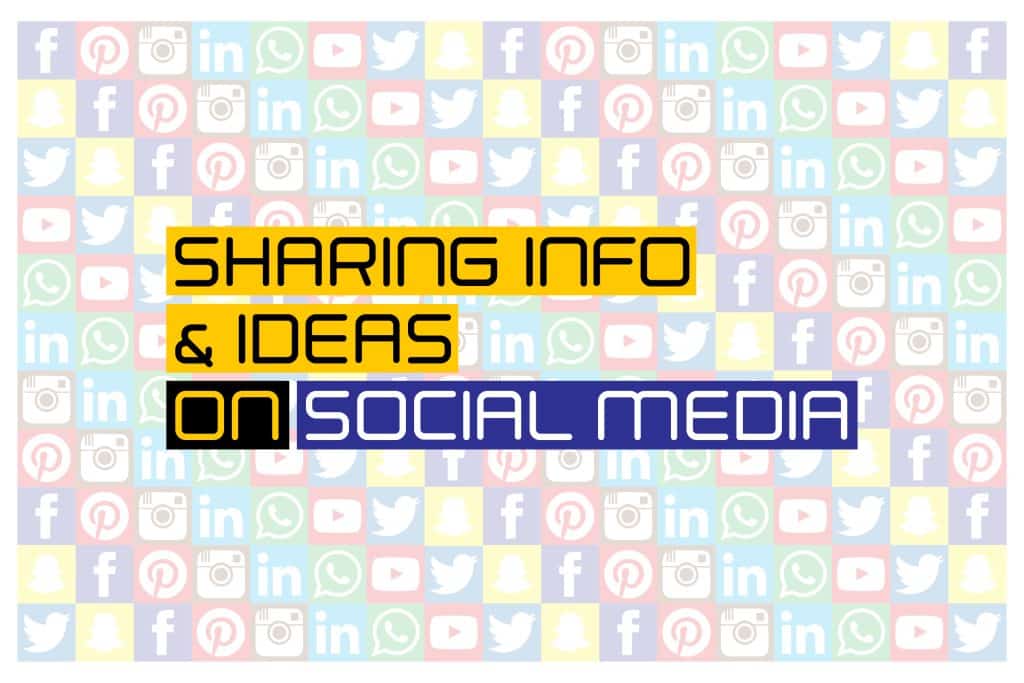
Sharing Information and Ideas on Social Media Platforms
Sharing information and ideas on social media platforms refers to the process of using these platforms to share content, such as text, photos, videos, and links, with others. This can be done through a personal profile, a business page, or a group or community page.
Social media platforms make it easy to share information and ideas with a large audience quickly and efficiently. For example, if you have a blog or website, you can use social media to share your content and attract more visitors. You can also use social media to share news, articles, and other content that you find interesting or relevant to your audience.
In addition to sharing content, social media platforms also provide tools for interacting with others and discussing ideas. This can include things like comments, likes, and shares, as well as more in-depth conversations through private messaging or live video chat.
Overall, sharing information and ideas on social media platforms can be a useful way to connect with others, share your thoughts and ideas, and stay informed about what is happening in the world. However, it is important to be mindful of the content you share and to respect the opinions and viewpoints of others.
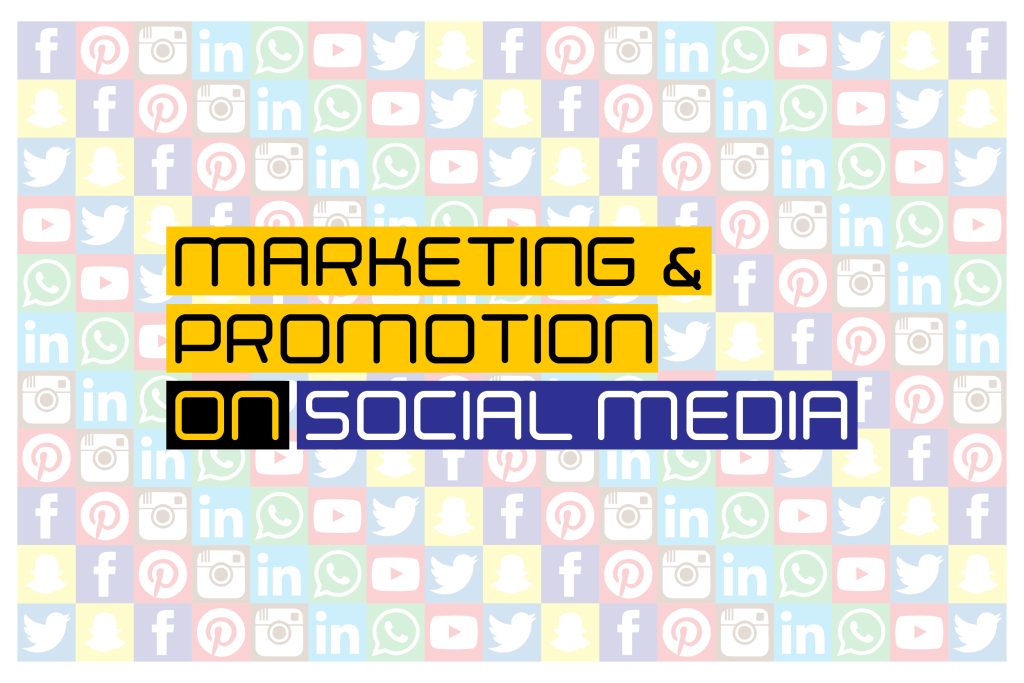
Marketing and Promotion on Social Media?
Marketing and promotion on social media refer to the use of social media platforms to promote products or services and reach a wider audience. This can be done through a variety of methods, such as:
Social media advertising: Many social media platforms offer paid advertising options, which allow businesses to target specific audiences and get their content in front of more people.
Social media marketing: This refers to the use of social media to connect with customers, build relationships, and promote products or services. This can involve creating and sharing content, interacting with followers, and running social media campaigns.
Influencer marketing: This involves partnering with social media influencers, who have a large following and influence in a particular niche, to promote products or services to their audience.
Customer service: Many businesses use social media as a way to provide customer service, answering questions, addressing concerns, and handling complaints.
Marketing and promotion on social media can be an effective way for businesses to reach a large audience and build brand awareness. However, it is important to understand the specific goals and target audience of your marketing efforts and to choose the right tactics and platforms for your business. It is also important to be mindful of the rules and guidelines of each social media platform and to follow best practices for marketing on these platforms.
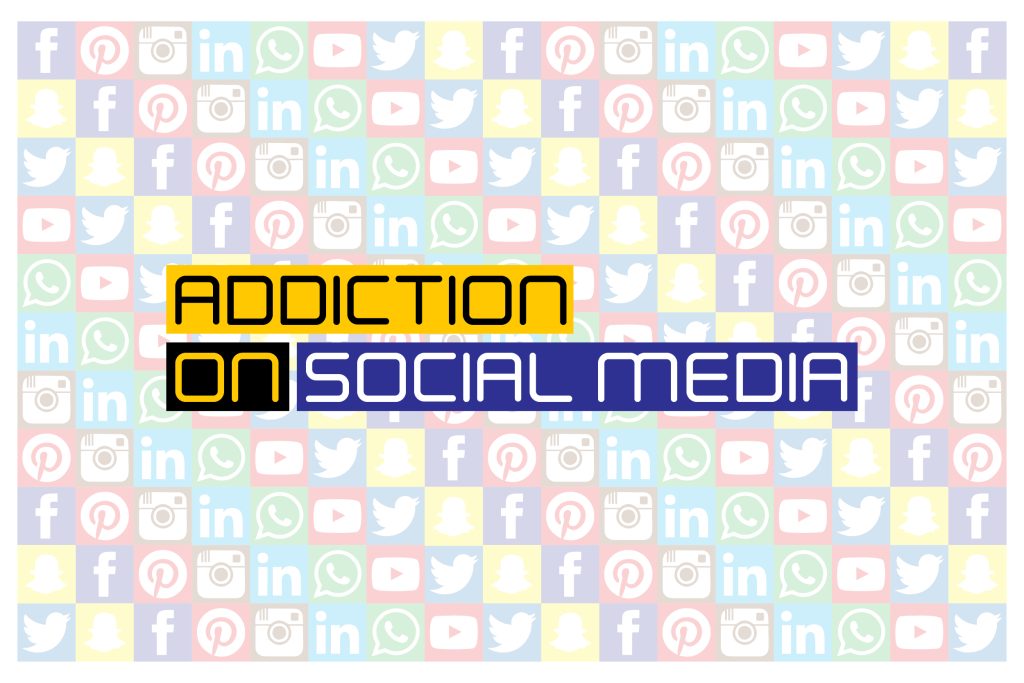
ADDICTION on Social Media?
Addiction to social media refers to the excessive use of these platforms, which can have negative impacts on a person’s life. People who are addicted to social media may spend a significant amount of time on these platforms, often at the expense of other activities such as work, school, or social interactions. They may also become preoccupied with their online activity and feel a strong need to be constantly connected to social media.
There are a number of factors that can contribute to social media addiction, including:
The need for social validation: Some people may become addicted to social media because they seek validation and approval from others through likes, comments, and shares.
FOMO (fear of missing out): Some people may become addicted to social media because they feel a need to stay up-to-date on what others are doing and fear missing out on events or experiences.
The use of notifications: Many social media platforms use notifications to alert users to the new activity, which can create a sense of urgency and lead to excessive use.
The use of algorithms: Many social media platforms use algorithms to show users content that is tailored to their interests and activity, which can create a “filter bubble” and lead to excessive use.
Social media addiction can lead to problems such as sleep deprivation, difficulty focusing on other tasks, and relationship problems. It can also have negative impacts on mental health, such as increasing feelings of anxiety, depression, and loneliness. If you think you may be addicted to social media, there are resources and strategies that can help you to reduce your use and find a healthier balance.
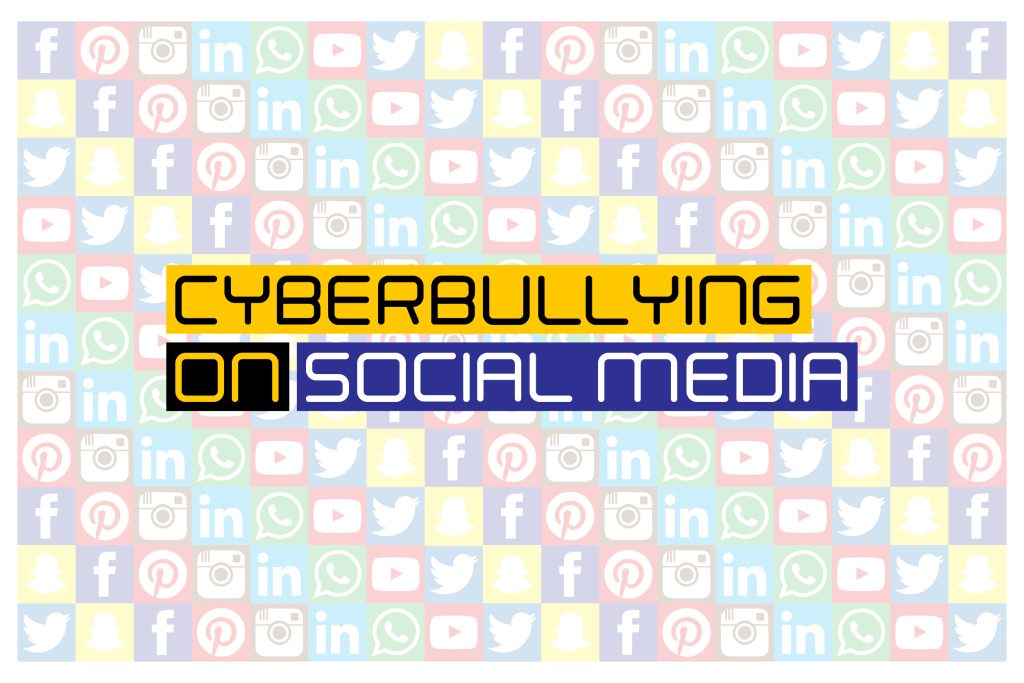
Cyberbullying on Social Media?
Cyberbullying is the use of technology, such as social media, to harass, threaten, or bully others. It can take many forms, such as sending threatening or abusive messages, spreading rumors or false information, posting embarrassing photos or videos without consent, or excluding someone from online groups or communities.
Cyberbullying can be especially harmful because it can reach a large audience quickly and can be difficult to escape, as the victim may see the bullying every time they log on to their social media accounts. It can also be difficult to identify the person responsible for the bullying, as they may use anonymous accounts or fake profiles.
Victims of cyberbullying may experience a range of negative impacts, including depression, anxiety, low self-esteem, and difficulty concentrating. They may also have difficulty sleeping, experience physical symptoms such as stomach aches and headaches, and have difficulty trusting others.
If you are being cyberbullied, it is important to remember that you are not alone and that there are resources available to help you. You can speak to a trusted adult, such as a parent, teacher, or counselor, and report the bullying to the social media platform or to law enforcement if necessary. There are also organizations and helplines that can provide support and advice. It is important to take steps to protect yourself online and to seek help if you are being bullied.
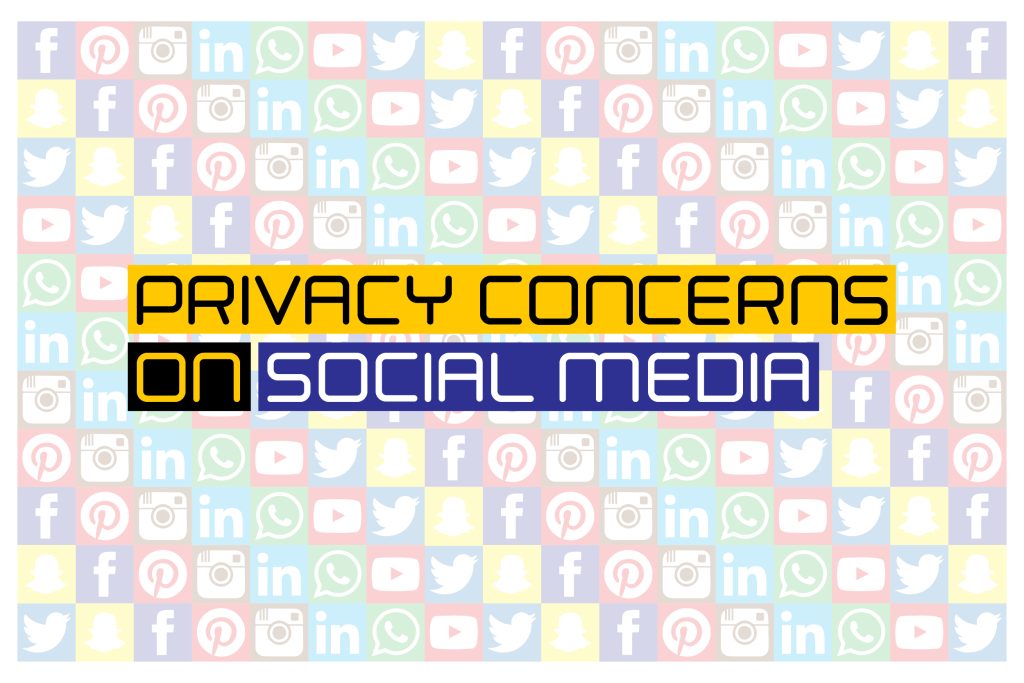
Privacy Concerns on Social Media
Privacy concerns on social media refer to the risks associated with sharing personal information or activity on these platforms. Some of the main privacy concerns on social media include:
Personal information: Social media platforms often collect and store personal information about their users, such as name, email address, location, and phone number. This information may be shared with third parties, such as advertisers, without the user’s knowledge or consent.
Tracking: Many social media platforms use tracking technologies, such as cookies and pixels, to collect information about users’ online activity. This can include websites visited, links clicked, and searches made. This information may be used to target users with ads or to track their behavior.
Location data: Many social media platforms collect location data, which can be accessed by the platform or shared with third parties. This can raise concerns about privacy, as it can reveal a person’s location and movements.
Public activity: Most social media platforms are public by default, which means that anyone can see a person’s activity and content unless the user’s privacy settings are adjusted. This can raise concerns about who can see a person’s activity and content, as well as the possibility of strangers accessing this information.
Hacking: There is a risk that social media accounts may be hacked, which can lead to personal information being accessed or stolen.
To protect your privacy on social media, it is important to be mindful of the personal information that you share and to carefully review the privacy settings and terms of service of each platform you use. You can also use tools such as privacy-enhancing browser extensions to help protect your online activity.
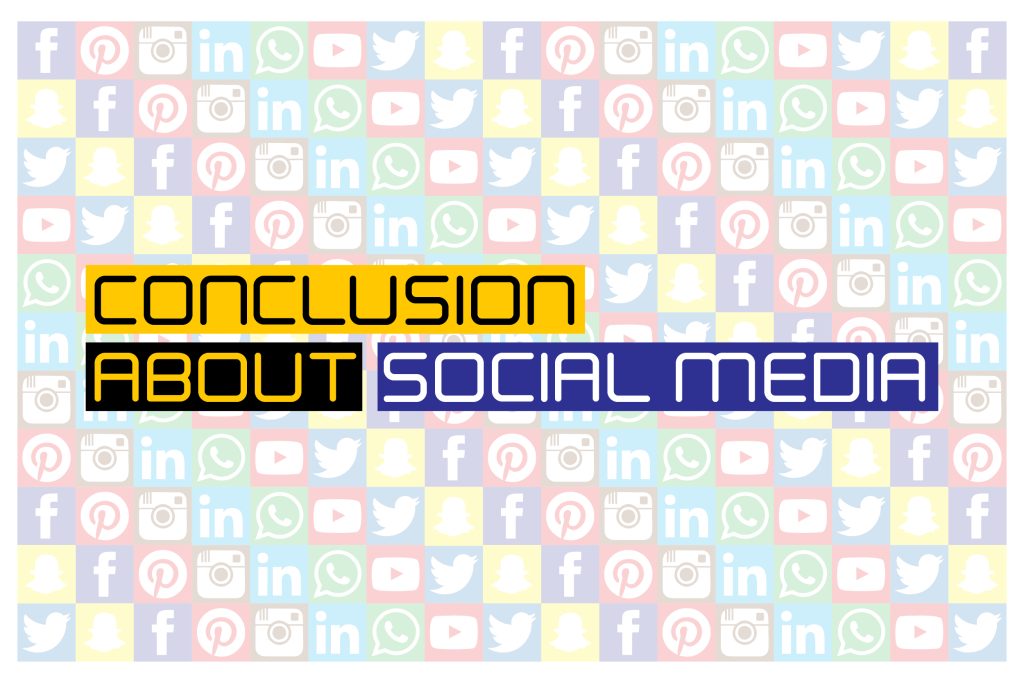
Conclusion – Social Media
Social media can be a useful and enjoyable way to connect with others, share information and ideas, and stay informed about the world. However, it is important to use these platforms responsibly and to be aware of the potential risks and drawbacks.
Some tips for using social media in a healthy and positive way include:
Set limits: It is important to find a balance and not to spend too much time on social media. Consider setting limits on your usage and taking breaks from these platforms.
Be mindful of what you share: Be aware of the personal information and activity that you share on social media, and consider who can see it.
Protect your privacy: Review the privacy settings and terms of service of each social media platform you use, and be mindful of the personal information you share.
Use strong passwords: Use strong, unique passwords for your social media accounts to help protect them from being hacked.
Be respectful: Remember to treat others with kindness and respect on social media, and do not engage in bullying or other inappropriate behavior.
By following these tips, you can use social media in a way that is positive and enjoyable, while also protecting your privacy and well-being.
